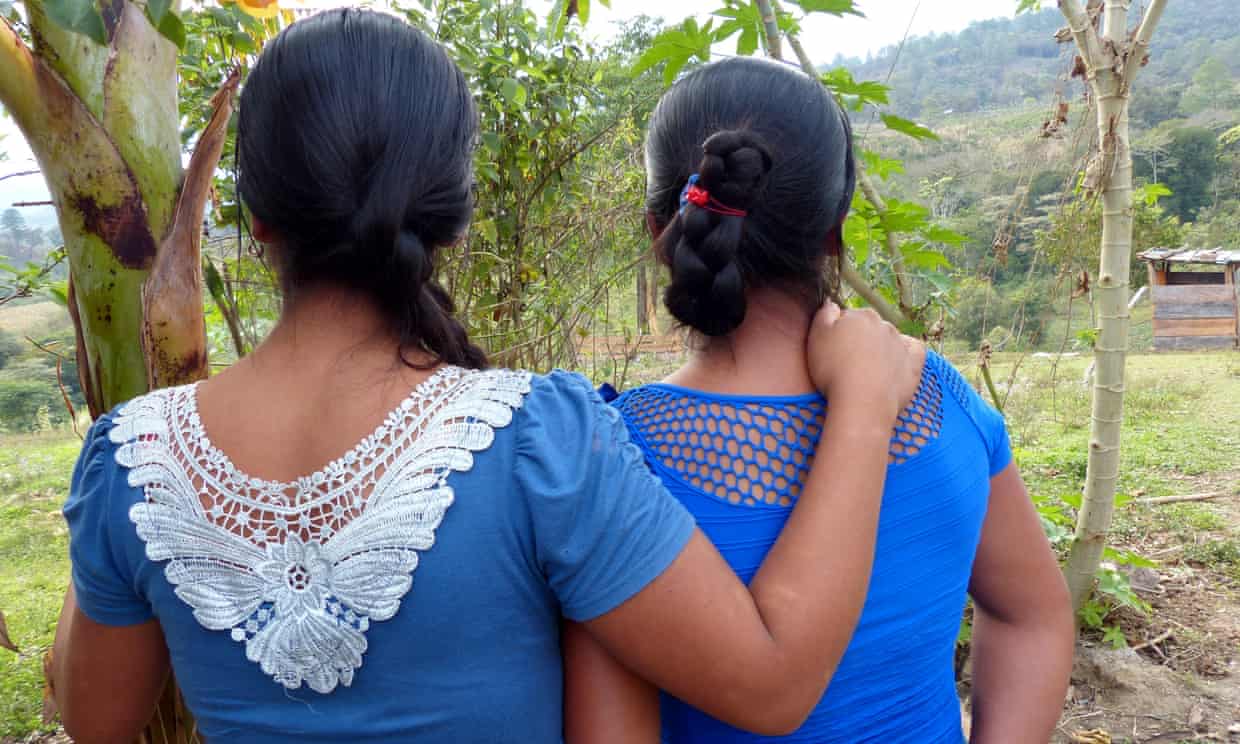And sends their rapist and murderers here.
-Geaux
Mexico tortures migrants – and citizens – in effort to slow Central American surge
A growing number of indigenous Mexicans are being detained by agents looking for Central American migrants, amid a crackdown driven partly by aid from US

Esther Juárez, 15 and her sister Amy, 24. Photograph: Nina Lakhani
Nina Lakhani in Ocosingo
Monday 4 April 2016 07.10 EDTLast modified on Monday 4 April 2016 21.21 EDT
http://www.theguardian.com/world/20...re-migrants-citizens-central-america#comments
Amy and Esther Juárez were edgy with excitement as they boarded the bus full of seasonal workers heading for a farm at the other end of Mexico from their home in the poverty-stricken southern state of Chiapas.
Although their brother Alberto,18, had made the same journey the previous year, it was the first time Amy, 24, and Esther, 15, had left the tiny indigenous community where they had grown up.
But about half-way there, immigration agents boarded the bus, and after checking all the passengers’ papers, ordered the three siblings to get off.
Mexico tortures migrants – and citizens – in effort to slow Central American surge
-Geaux
Mexico tortures migrants – and citizens – in effort to slow Central American surge
A growing number of indigenous Mexicans are being detained by agents looking for Central American migrants, amid a crackdown driven partly by aid from US

Esther Juárez, 15 and her sister Amy, 24. Photograph: Nina Lakhani
Nina Lakhani in Ocosingo
Monday 4 April 2016 07.10 EDTLast modified on Monday 4 April 2016 21.21 EDT
http://www.theguardian.com/world/20...re-migrants-citizens-central-america#comments
Amy and Esther Juárez were edgy with excitement as they boarded the bus full of seasonal workers heading for a farm at the other end of Mexico from their home in the poverty-stricken southern state of Chiapas.
Although their brother Alberto,18, had made the same journey the previous year, it was the first time Amy, 24, and Esther, 15, had left the tiny indigenous community where they had grown up.
But about half-way there, immigration agents boarded the bus, and after checking all the passengers’ papers, ordered the three siblings to get off.
Mexico tortures migrants – and citizens – in effort to slow Central American surge